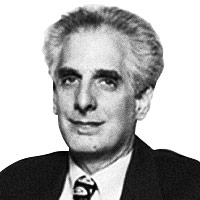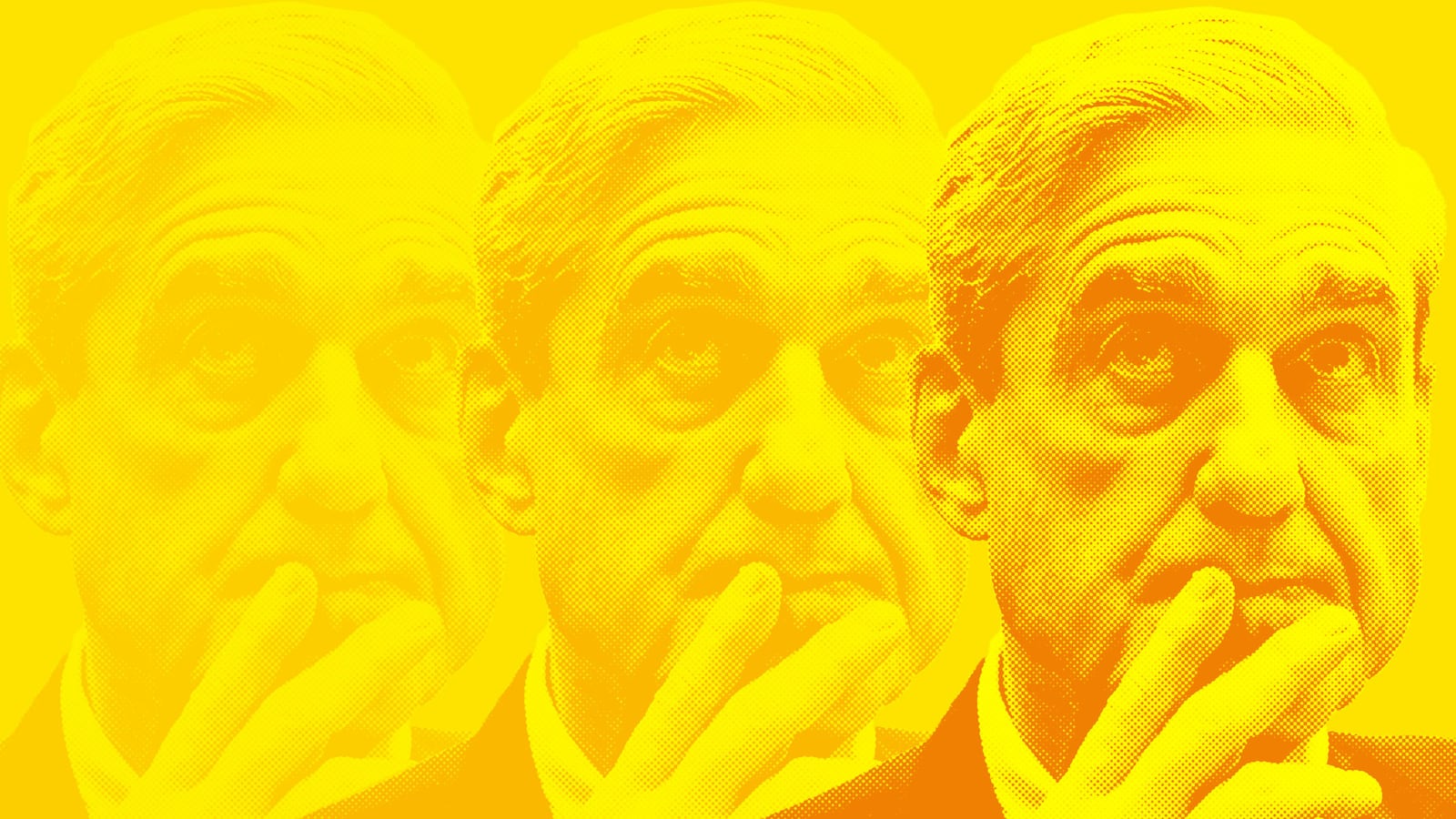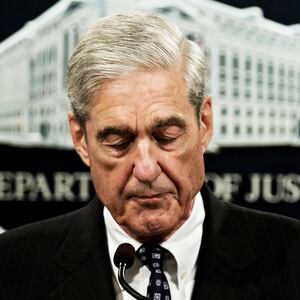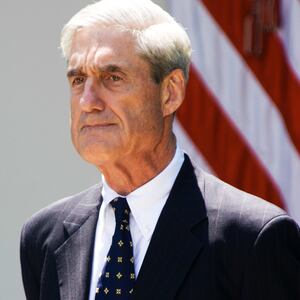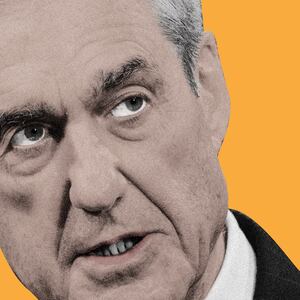The United States is experiencing a cognitive dissonance heretofore familiar only to those living under authoritarian regimes. Despite Robert Mueller’s catalogue of President Trump’s abuses of power that dwarf Richard Nixon’s in culpability, the nation remains locked in a debate over whether the Trump did anything wrong.
Some claim that Mueller is to partially blame for this allowing this dissonance to develop, because he did not expressly label the president a felon. Mueller did err, but not in that decision; in fact expressly assigning criminal liability to Trump in the absence of an indictment could have subjected Mueller to damning accusations of bias. Rather, Mueller erred in failing to anticipate the sheer willingness of Trump and his minions to brazenly lie about his report. As a consequence, he remained silent for two months after his investigation concluded, allowing the presidential mendacity to fester.
It may be the singular mistake of Mueller’s otherwise exemplary, indeed historically successful, investigation.
A gap between fact and lived experience has permeated the Trump presidency from the outset, but it reached a crescendo with the release of the Mueller Report. The document details the willing acceptance by Trump and his campaign of criminal assistance from the Russian government during 2016, as well as the president’s brazen efforts shut down the investigation of the attack on our democratic system. Even so Trump’s culpability remains contested, based not on any substantial challenge to the facts detailed in the report, but by repeated lies.
The primary blame for the situation therefore, rests with the president and his minions-associates, most notably Attorney General William Barr who pursued a disinformation campaign to misrepresent Mueller’s findings before they were released. Mueller erred, however, because he (like so much of the nation) suffered from a failure of imagination. The lifelong law enforcement officer failed to comprehend that the United States under Trump has actually taken on certain attributes of an authoritarian state, requiring those seeking to uphold democratic principles to respond accordingly.
Throughout their investigation, Mueller and his team hewed to a single-minded rule: speak only in court, and in the documents they produced. Mueller’s stoicism during the pendency of his investigation was actually remarkably successful. Despite Trump’s relentless, defamatory attacks, Mueller and his investigation remained popular, a fact that is all the more remarkable given the polarization that has come to permeate our national public life. Most of the public consistently favored the continuation of Mueller’s investigation and rejected Trump’s claim it was a “hoax.” That public support was likely critical to the failure of Trump’s recently disclosed efforts to engineer Mueller’s firing and the shuttering of his investigation.
Furthermore, Mueller was also aware of prior examples of investigators whose volubility had undermined them.
Whitewater Independent Counsel Kenneth Starr had a full blown public relations operation. Prosecutors, including Brett Kavanaugh, systematically leaked to the press; and Starr himself served as the primary advocate in favor of Bill Clinton’s impeachment before Congress, for which he was relentlessly attacked by the Democrats’ outside counsel, Abbe Lowell. Starr’s credibility was in left in shambles, even as the effort to remove Clinton from office failed, with the public rejecting any pretense that he was an objective law enforcement officer.
More recently, James Comey, unintentionally, but perhaps decisively, contributed to Trump’s election, first by gratuitously describing Hillary Clinton as “extremely careless” in her handling of classified information in a news conference he arranged behind the back of the Justice Department; and second by disclosing the reopening of the investigation on the virtual eve of the election, in breach of longstanding DOJ policies.
By remaining silent throughout his investigation, Mueller successfully avoided such pitfalls. But perhaps the isolation that Mueller maintained during the course of his investigation contributed to his apparent failure to imagine the consequences of failing to speak at the probe’s conclusion.
Mueller could well have provided the very same type of public summary of his report and its significance that he gave to the nation last week soon after delivering his report to the attorney general. While Barr might have opposed such a presentation, as a practical matter, he couldn’t have prevented it.
Furthermore, such statements by prosecutors at the conclusion of investigations are hardly unusual—and need not be as destructive as the actions of Starr and Comey. The last special counsel to investigate White House misconduct was Patrick Fitzgerald (named by then-Deputy Attorney General Comey) to investigate the leak of the identity of undercover CIA officer Valerie Plame. In announcing the indictment of Vice President Cheney’s top aide “Scooter” Libby (whom Trump recently pardoned) for perjuring himself during grand jury testimony, Fitzgerald sought to preempt expected excuses for Libby’s misconduct by stating: “Without the truth, our criminal justice system cannot serve our nation or its citizens. The requirement to tell the truth applies equally to all citizens, including persons who hold high positions in government.”
Had Mueller similarly delivered his statement of last week soon after delivering his report to Barr, he likely could have blunted, if not preempted entirely, the Trump efforts to misrepresent his office’s findings and their significance. For example, Mueller could have made plain that his decision not to make charging decision regarding Trump was grounded in a Justice Department rule against indicting a sitting president, and had nothing to do with Trump’s culpability (as Barr later suggested).
As a recently released letter to Barr indicates, Mueller simply didn’t contemplate that Barr would also embark on a weeks-long campaign to outright lie about the report and its findings, commencing with Barr’s own mendacious letter of March 24, 2019, and continuing through a press conference held minutes before the report itself was released.
It was only after Barr announced that he taking up the president’s demand for a full-blown investigation of the law enforcement officers who successfully uncovered the Russian attack that Mueller belatedly spoke. While all of the facts Mueller recited came straight out of his report, it was only after he appeared before the cameras that the full import of his account of the president’s misconduct finally began to hit home.
Heaping blame upon Mueller for failing to anticipate the willingness of the president and his associated to lie is not productive. Learning from the experience is, nonetheless, essential. We have clearly learned that institutional norms must sometimes give way when the president himself is embarked upon a challenge to our democratic system of government.
Comey actually recognized this following the election, when he insisted upon informing Congress of the then-ongoing investigation of the Trump campaign with regards to the Russian attack and (after he was fired) forced Rosenstein to name a special counsel by leaking memos recounting presidential misconduct. While Comey’s volubility, and breaches of institutional norms, likely assisted Trump in winning the election, they were also essential to ensuring that Trump’s misconduct was fully investigated.
Now that Mueller has provided a detailed account of the president’s abuses of power, it falls to the Congress to find a way to indelibly present those facts to the public, thereby counteracting the dissonance that has gripped the nation for months.
It’s unlikely that following the Starr model by bringing Mueller before Congress (over his objection) to become the face of the next stage of the investigation would be wise. Rather, as Mueller himself indicated, the most effective means of counteracting the lies would likely be through the testimony of the witnesses, and presentation of the other evidence Mueller assembled. Though the White House has set out to deny Congress access to those witnesses and evidence, Congress simply cannot let that stand. As a judge recently stated, the formally opening of an impeachment inquiry should not be required to conduct such an investigation. But if there proves to be no other way to move forward, Congress may ultimately be forced to take that step. The survival of the democratic system that Trump seeks to undermine depends upon it.
